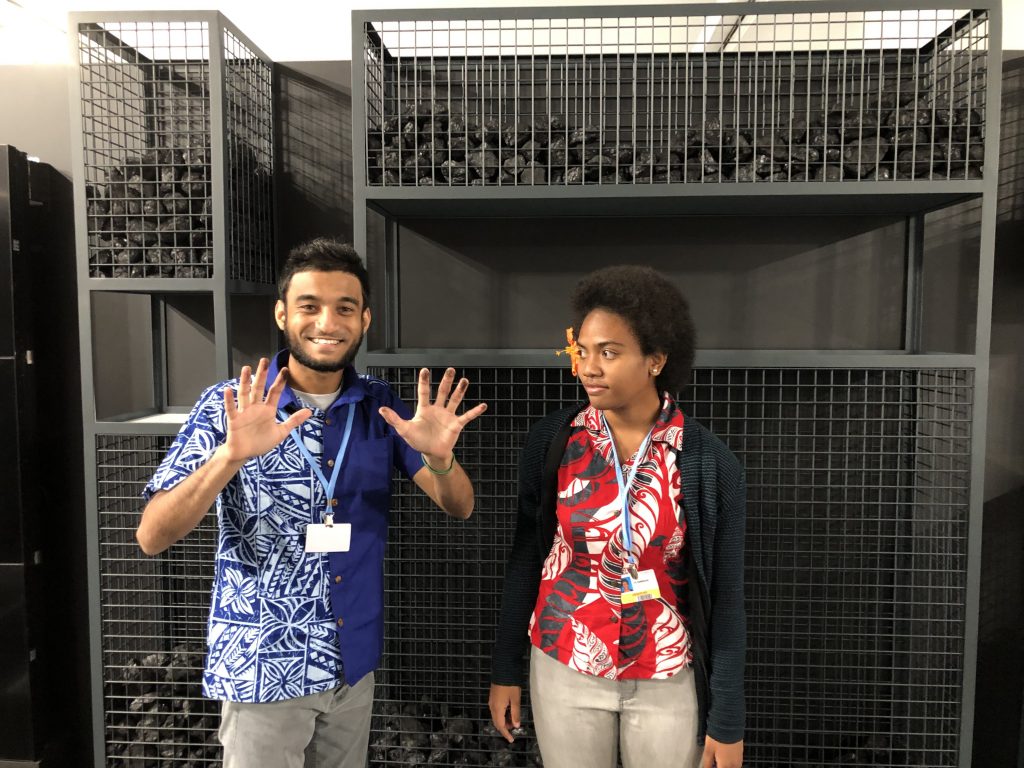
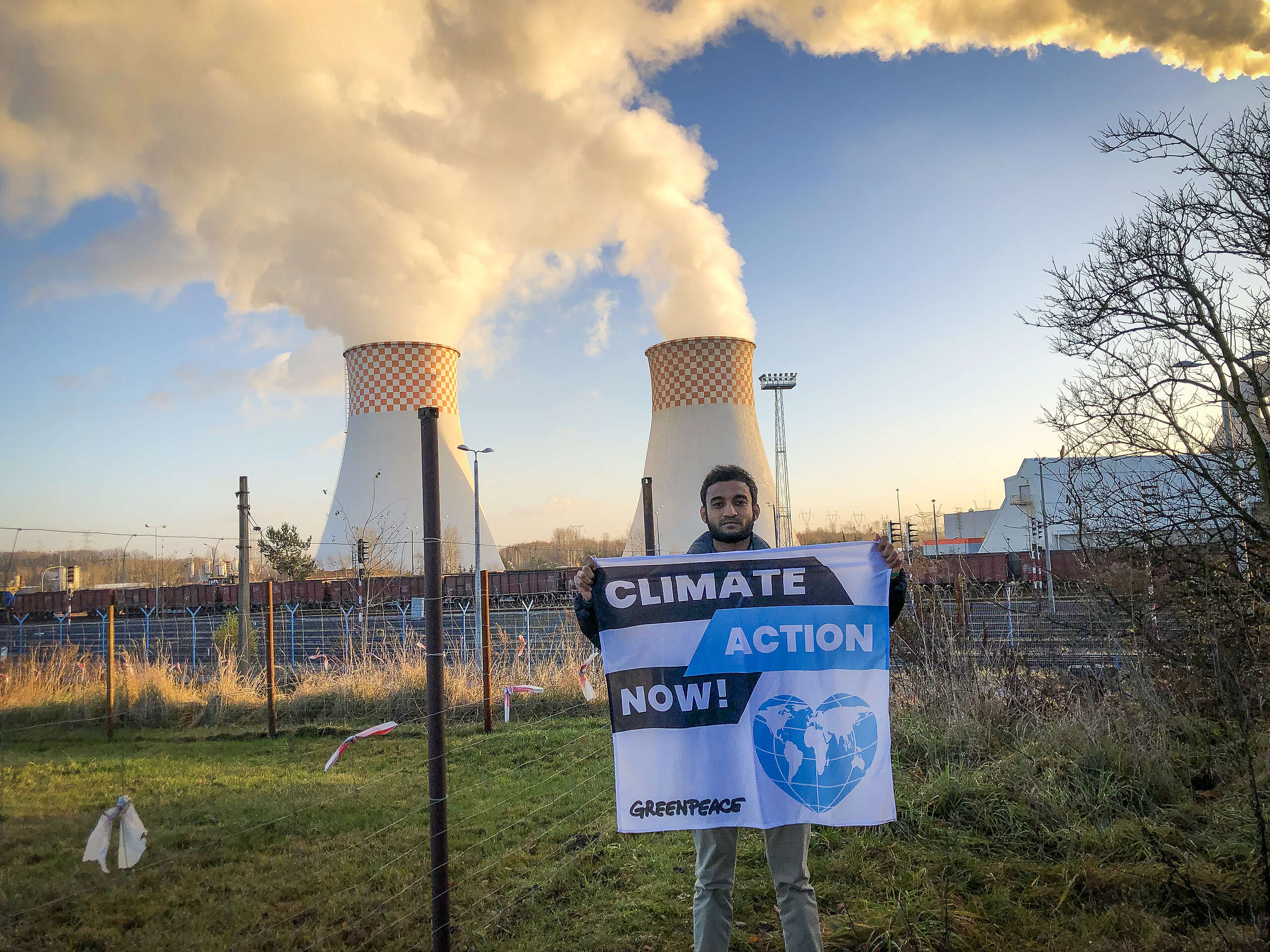
Speaking truth to power at the COP24 meeting in Katowice – the coal capital of Poland © Andrew Kelly/Greenpeace
He’s showing the world that with vulnerability comes power – and the hope and resilience of the Pacific Islands are living testament to that.
Having our voices heard is not a choice. To retain our history, culture and livelihoods, we need the world to listen.
- Why is it so important that the voices of Pacific Islanders are heard by the rest of the world?
Pacific islanders are resilient people. Our cultures are rich and our people identify with the land and the ocean that surrounds us. It is part of our identity. We have contributed least to climate change but feel the worst impacts. This makes us vulnerable because it makes it harder for us to respond. We are disproportionately affected and do not have the capacity and resources that the richer countries have. Mitigating the impacts of climate change is all of our problem.
- What climate change impacts have you witnessed?
I spent my entire life growing up in the islands. I have witnessed tropical cyclones, floods, and droughts. I have seen how these severe weather events have affected our people’s livelihoods. I was lucky that I lived in an urban centre and as a result often avoided the direct and most severe impacts of these natural disasters in my childhood and teenage years.
Now, I have a three-year old daughter who I want to grow up to experience the fullness of life and enjoy the abundance that the islands have to offer. But she has already experienced more severe weather events with higher intensity than I did in all my youth. According to science, these severe weather events are only going to get worse. So this is the fear I have – my daughter will grow up not knowing life without frequent severe weather events that are caused by climate change.
- What will it mean for your life and the lives of the people in your community if action against climate change doesn’t begin now?
The fact is climate change is moving faster than we are able to respond. There is a serious lack of climate leadership by countries who are the most responsible for it.
No climate action will mean our people will continue to live as if severe weather events are a normal part of our lives. We will need to continue to adapt until we are not able to anymore. We need a global commitment from every government of the world that they will radically transition towards renewable energy sources and put an end to fossil fuels.
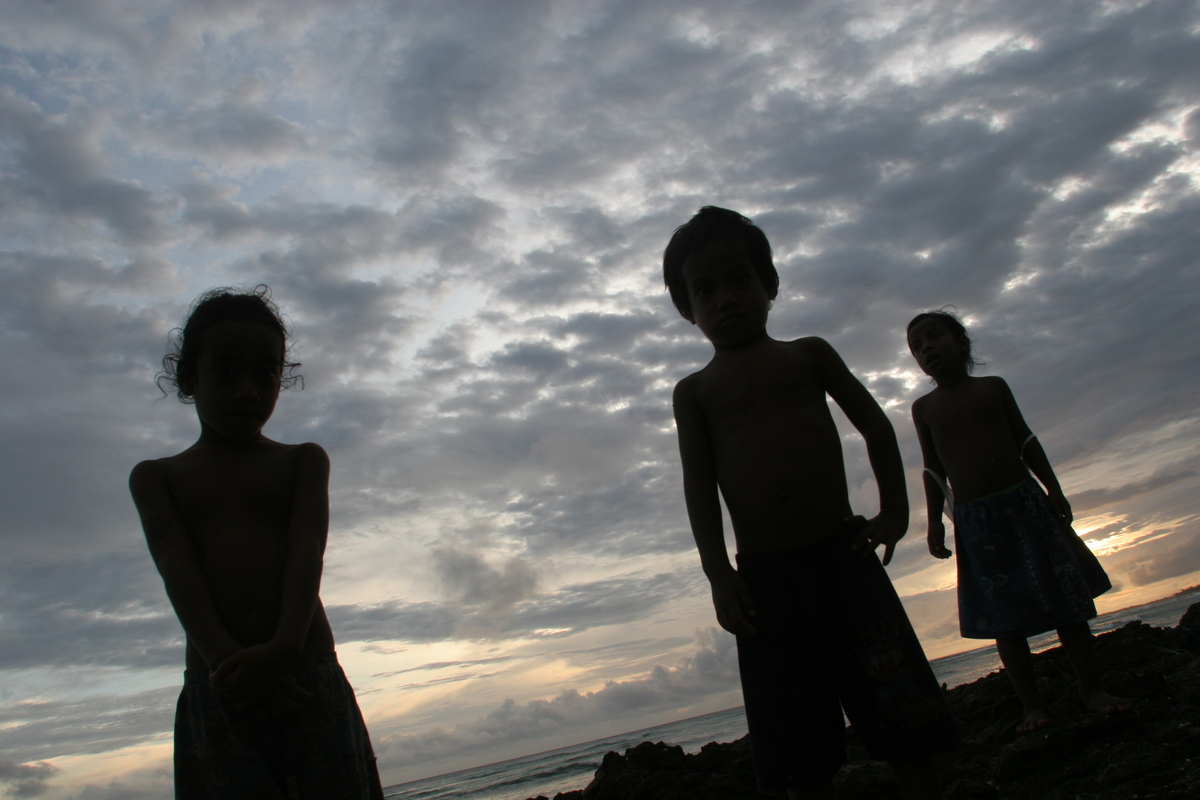
Children on the beach silhouetted by the setting sun, Tarawa, Kiribati, Paciific Ocean. © Jeremy Sutton-Hibbert/Greenpeace
- What do you envisage for the future of your community and country if action against climate change begins now?
The Pacific, which includes numerous vulnerable nations, is leading from the front lines. We are winning the moral battle to inspire action from the developed world. But climate change is a global problem and it needs a global solution. Urgent climate action today will allow us to have a better future. Rapid, just transition to renewable energy will enable our people to enjoy a safe and healthy livelihood.
- Why do you think countries that produce and burn fossil fuels aren’t acting?
Countries burning fossil fuels are blinded by the profits and as a result their moral compass has eroded.
Does it make them selfish? Yes. Do they care? No.
The sooner they realise that we are all in it together and that they are not immune to climate change the better it is for our planet. We can only build a better, sustainable future by acting on climate change. What does that mean? Phase out fossil fuels. Now is the time.
- What do you think could help convince these countries to change their behaviour?
It is absolutely clear that people around the world are demanding action. Children are walking out of schools to protest the lack of political will to act on climate, vulnerable nations are calling for justice and communities are standing up to defend their land and culture. These are signals to the governments of the high polluting economies to stand with the people and commit to accelerating climate action. Coal is dead. Renewable energy is the future.
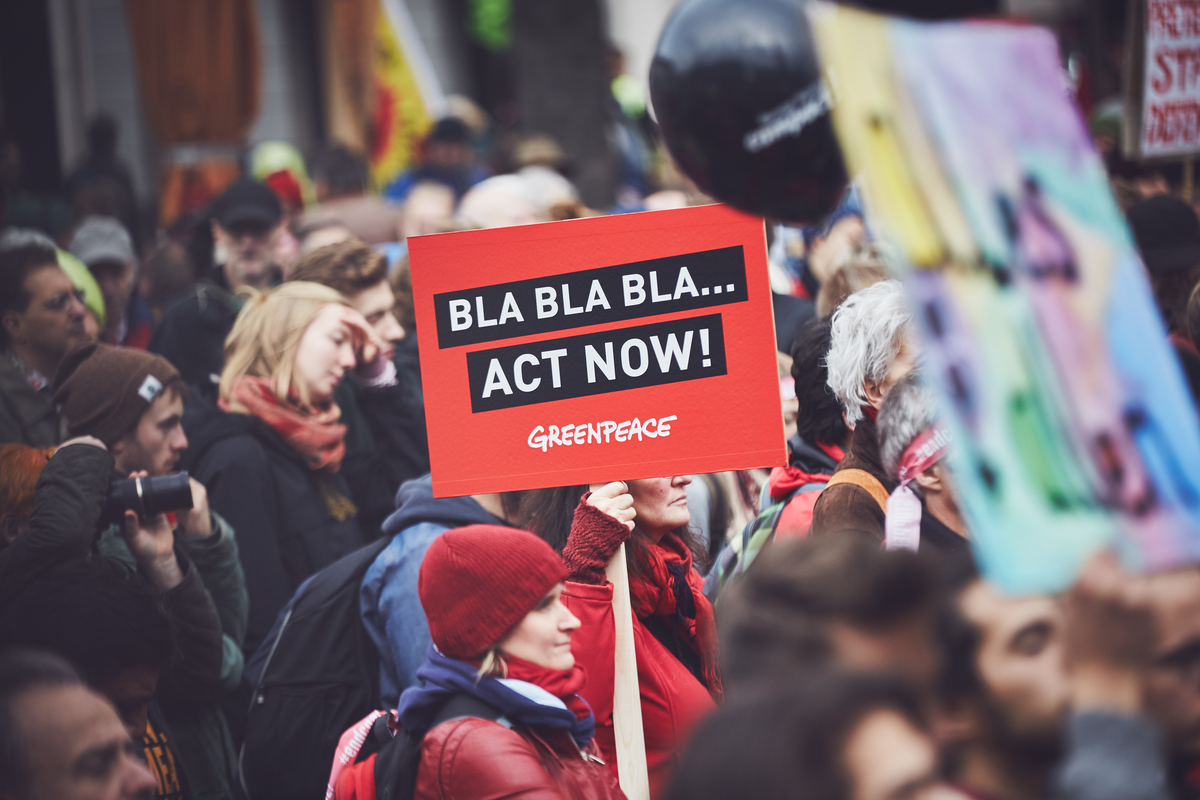
Greenpeace activists at a climate march in Bonn. © Greenpeace
- What do you think is Australia’s responsibility in helping reduce the impact of climate change on Pacific nations?
Climate change is the single greatest existential threat to the Pacific islands. Australia is often termed as the big brother of the region. But they have not been acting like one. Australia continues to invest in fossil fuels and is one of the biggest coal exporters in the world. Its government has a love-affair with the coal industry. They refuse to take meaningful action on climate change by reducing their carbon emissions and coming up with a plan to phase out fossil fuels. So while Australia talks about helping its Pacific neighbours their actions suggest otherwise. They continue to be a roadblock to real climate action when they should be a bridge.
- Why is it so important that this message comes from people on the front lines of climate change such as yourself?
We live with the experiences. We see it ourselves daily. We used to have a cyclone season when I was growing up. But today, the cyclone season is all year around. We have to be prepared all the time. Cyclones are forming well before the cyclone season, with greater intensity. Sea-levels are rising. Scientists are projecting that entire island nations will need to be relocated because of it.
It is not us who are responsible for it but we are taking action to decarbonise our economies. If we can do it, why can’t the high polluting countries do the same?
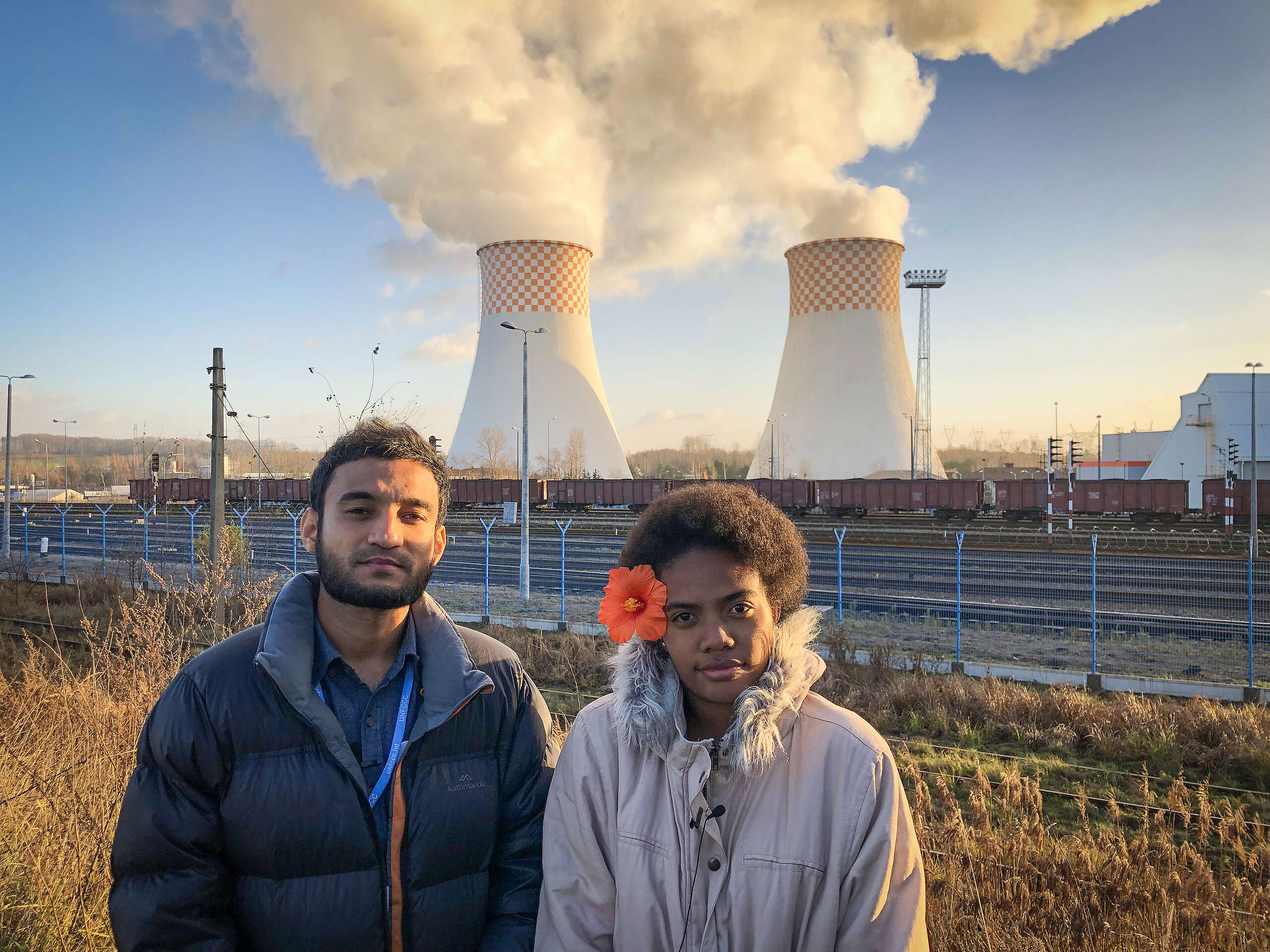
Kelvin with Litia Baleilevuka, Pacific Island Represent activist © Andrew Kelly/Greenpeace
- Climate disaster is happening rapidly and vulnerable communities stand to lose a lot – fast. Somehow you have the determination to work towards a better world. What gives you hope and enables you to do this?
I want to make a difference for my daughter’s future. She is my reason for hope. I believe we can change the course and win the climate fight if governments of developed countries show more political will to raise their climate ambitions.
Right now, they aren’t doing it. They aren’t listening, they aren’t being bold, they aren’t showing the political commitment. And this political inaction gives me the fuel to continue to work towards a better future and add to the many voices from the Pacific who work so hard to give our people a fighting chance.
- What do you want to achieve by participating in the COP24?
I want to be able to call out the climate hypocrisy of the high polluting countries by participating at COP24 and share it with the young people in the Pacific. We will do it by communicating what happens at the conference in a language that resonates with Pacific islanders. We will cut through the climate sweet-talk and say it as it should be said. And if we upset those in power that means we are doing it right.

